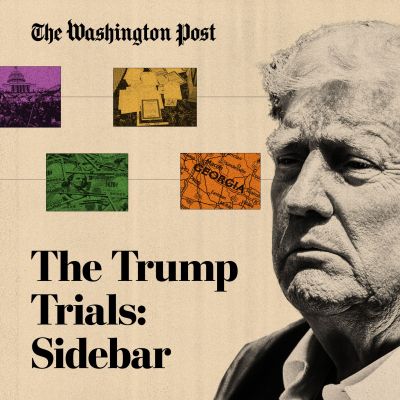The Washington Post’s Libby Casey, Rhonda Colvin and James Hohmann gather for a weekly conversation about former president Donald Trump’s ongoing legal troubles. As trials loom in New York, Florida, Georgia and Washington, D.C., the team will break down the most important – and historic – twists and turns, all as Trump seeks a second term as president. The crew will sit down each Thursday (with the occasional breaking news episode) to discuss what has happened that week, and what’s coming up the next week – often with guest appearances from Washington Post reporters. Listen in to see how you can submit your own questions for the team to answer.
How the Supreme Court became the most trusted branch, and how electoral politics might undo that
The passing of Supreme Court Justice Ruth Bader Ginsburg last week, has created a vacancy on the bench. President Trump and the Republicans have since taken steps toward quickly confirming a conservative replacement for Ginsburg, who was a liberal icon.
Trump is expected to announce a nominee late this week, and Senate Majority Leader Mitch McConnell (R-Ky.) has suggested confirmation hearings in the Senate Judiciary Committee could begin mid-October.
Republicans hope the Supreme Court fight will inject a last-minute boost into both Trump’s reelection bid and the battle for the Senate majority.
Meanwhile, Democrats have vowed to fight in the hearings and on the Senate floor, citing precedent set by Senate Republicans who refused to consider President Barack Obama’s Supreme Court nominee during an election year. But beyond procedural tactics to slow the process, there may not be much that Democrats can do to stop Trump’s pick for a conservative justice from filling the seat on the court.
Is such a speedy nomination and confirmation process unusual when it comes to new Supreme Court Justices? How much power does a president have to push through a confirmation?And as questions arise about how the Democrats might retaliate, including court packing, is changing the number of justices really possible? How much does the Constitution actually dictate?
Plus, increasingly political confirmation hearings and the prominence of Supreme Court as an issue on the campaign trail have really added to a sense of a politicized judiciary. Taken together, does all of this compromise the independence of the highest court in the land?
On this episode of the “Can He Do That?” podcast, we capture the evolution of our Supreme Court and how that history informs what’s happening in Congress and on the campaign trail today, in conversation with senior congressional correspondent Paul Kane and Lisa Holmes, associate professor of political science at the University of Vermont.
Related reading and episodes
- Republicans hope Supreme Court fight boosts Trump’s reelection bid, helps GOP hold Senate majority
- How can the Supreme Court maintain impartiality in America's modern political climate?
- The problems with pardon power
